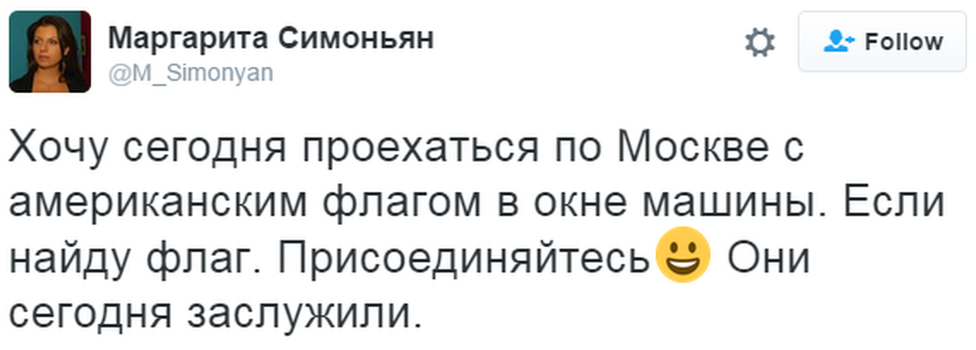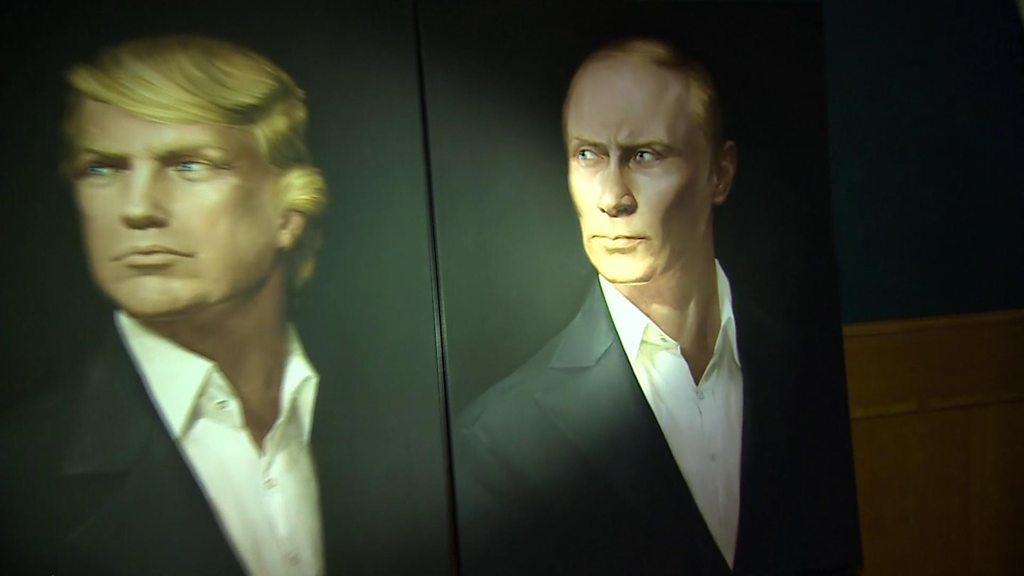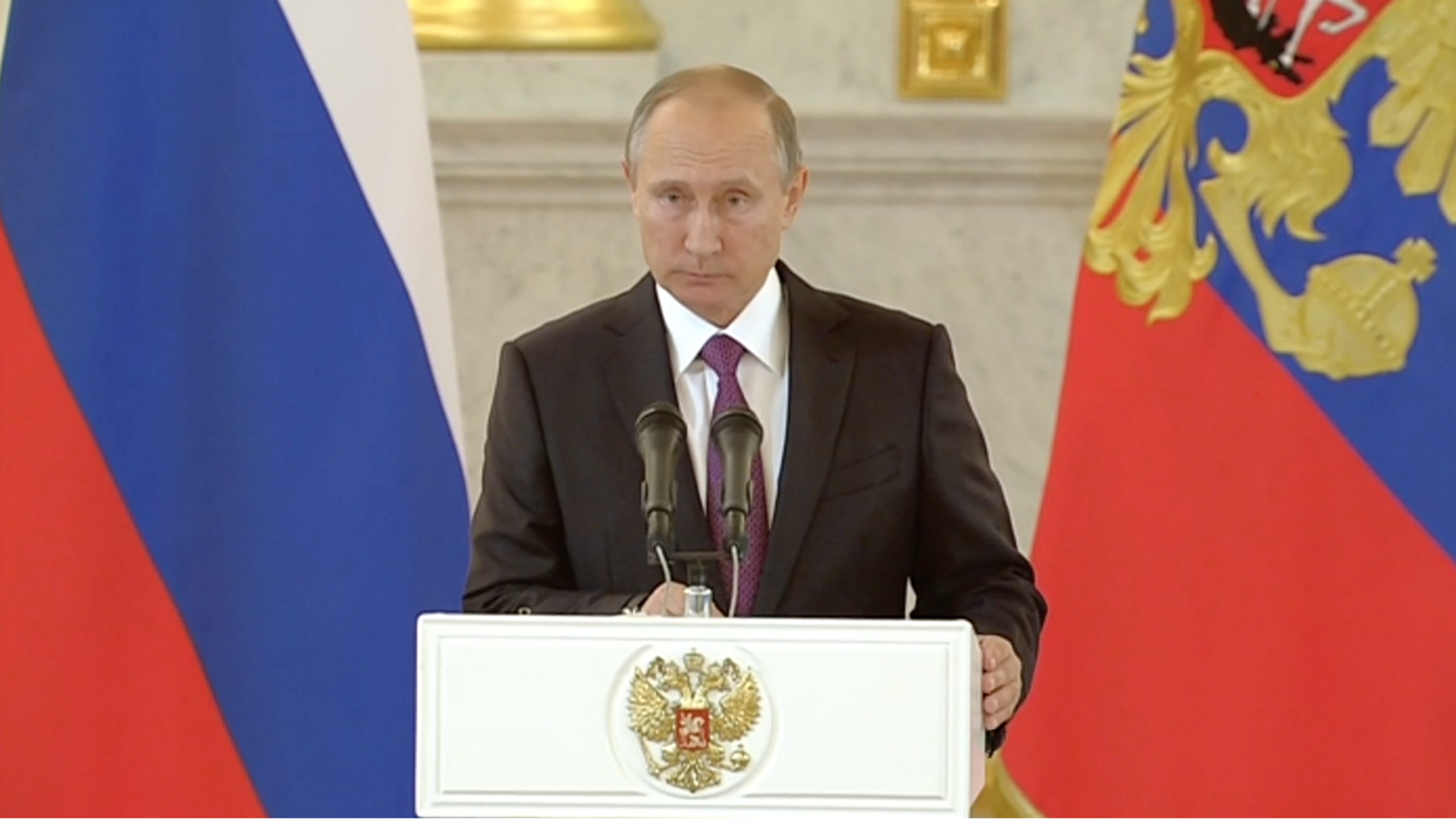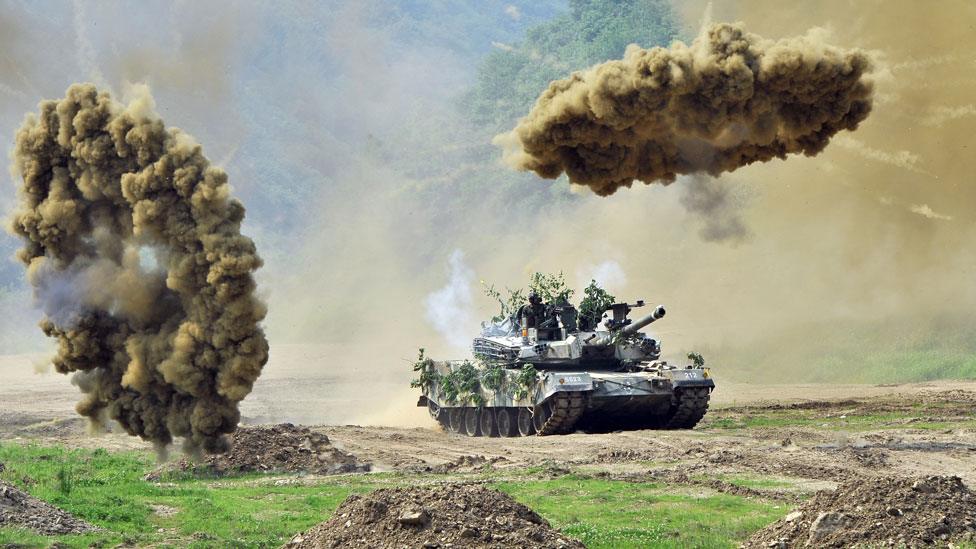US election 2016: Why Russia is celebrating Trump win
- Published
Russia reacts to Donald Trump's presidential victory
Deputies in Russia's parliament broke into applause at the news Donald Trump had been elected US president.
Vladimir Putin wasted no time sending his congratulations and state TV channels switched quickly from claims of fraud, to hailing the triumph of the "man of the people".
Donald Trump's win clearly suits Moscow.
In a telegram dispatched soon after the victory speech, President Putin hoped the two could work together to end the "crisis" in US-Russian relations.
He also called for constructive dialogue, based on "mutual respect and a real consideration for the other's interests".
Pro-Kremlin commentators and politicians were openly gleeful.
"I want to drive through Moscow with an American flag in the window. Come and join me," Russia Today editor Margarita Simonyan tweeted, with a smile emoji. "Today, they earned it."

"They were fighting the establishment, traditional Washington and the lies pouring from all the TV channels," is how Vyacheslav Nikonov, a deputy with the pro-Putin United Russia party, interpreted Donald Trump's voters.
"This election was a protest vote. Against the existing way, and the existing White House," Mr Nikonov pronounced, speaking on the state run TV channel Russia 24, which covered the US election extensively throughout the night.
Not everyone in Russia was rejoicing though.
'Like being arrested'
"I'm watching his speech and I have to pinch myself," tweeted an activist with the Parnas opposition party. "I can't believe this is happening," Natalya Pelevina wrote.
Maria Zakharova told the BBC after Donald Trump's election victory that Russia was ready to work with him
"It's like being arrested. Dramatic at the beginning. But then you start to figure out how to live and create in prison. You'll overcome," consoled a tongue-in-cheek tweet from the Pussy Riot girls, imprisoned for performing an anti-Putin song in Moscow cathedral in 2012.
The US has accused Russia of helping to engineer the election outcome by carrying out cyber attacks that weakened Hillary Clinton's campaign.
President Putin himself recently laughed off the suggestion of Russian interference, wondering whether the US was a "banana republic".
But antipathy to Hillary Clinton is deep-rooted here. As Secretary of State, she was sharply critical of Russia's flawed 2011 parliamentary elections, leading President Putin to accuse her of fomenting the mass protests against him that followed.
Mr Putin congratulated Donald Trump but said there was a hard road ahead
Russian media coverage of her own campaign was vicious, portraying her as an aggressive Russophobe, a criminal and a liar.
"Clinton will surround us with nuclear missiles; Trump would recognise Crimea," a typical tabloid headline read on election day.
"We are very glad that relations will improve with Russia and stop the artificial Cold War which Washington and London try to push on the world," pro-Kremlin analyst Sergei Markov told the BBC.
"We're glad the new president will be Donald Trump who respects Vladimir Putin and recognises that Crimea is part of Russia," he said, referring to Mr Trump's comment that Russia's annexation of the peninsula could be 'looked at'.
So could this herald a thaw? Or is Russia planning to exploit the division and disarray caused by this result to pursue its own priorities, including in Syria?
There are growing hints that whilst Americans are reeling from their bitterly-fought election, Russian troops will launch a new push with Syrian government forces to take Aleppo.
That way, Russia would ensure that the new, "constructive dialogue" President Putin is calling for with Donald Trump, starts from a position of strength.
- Published9 November 2016

- Published9 November 2016

- Published9 November 2016
- Published25 April 2017
